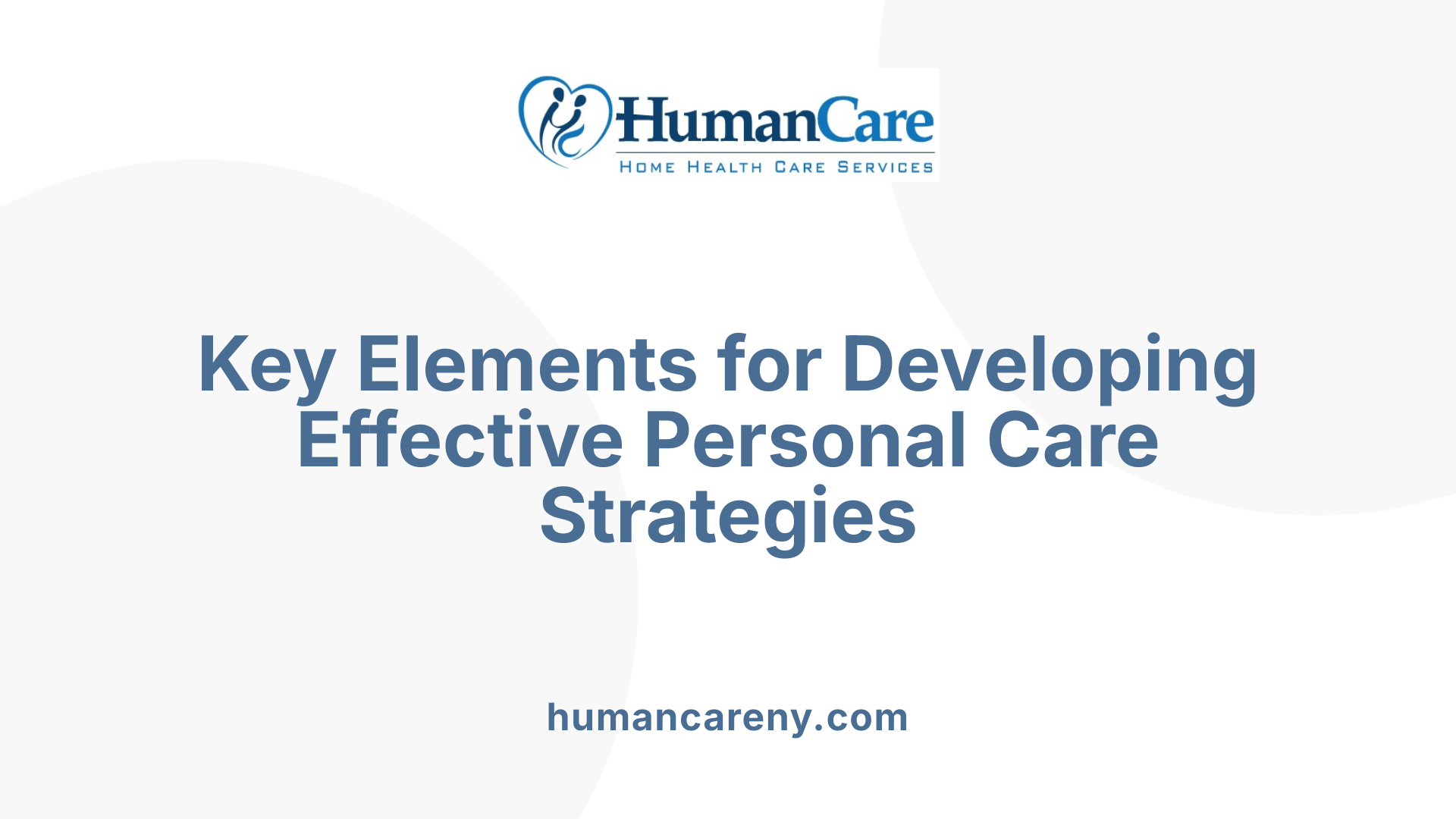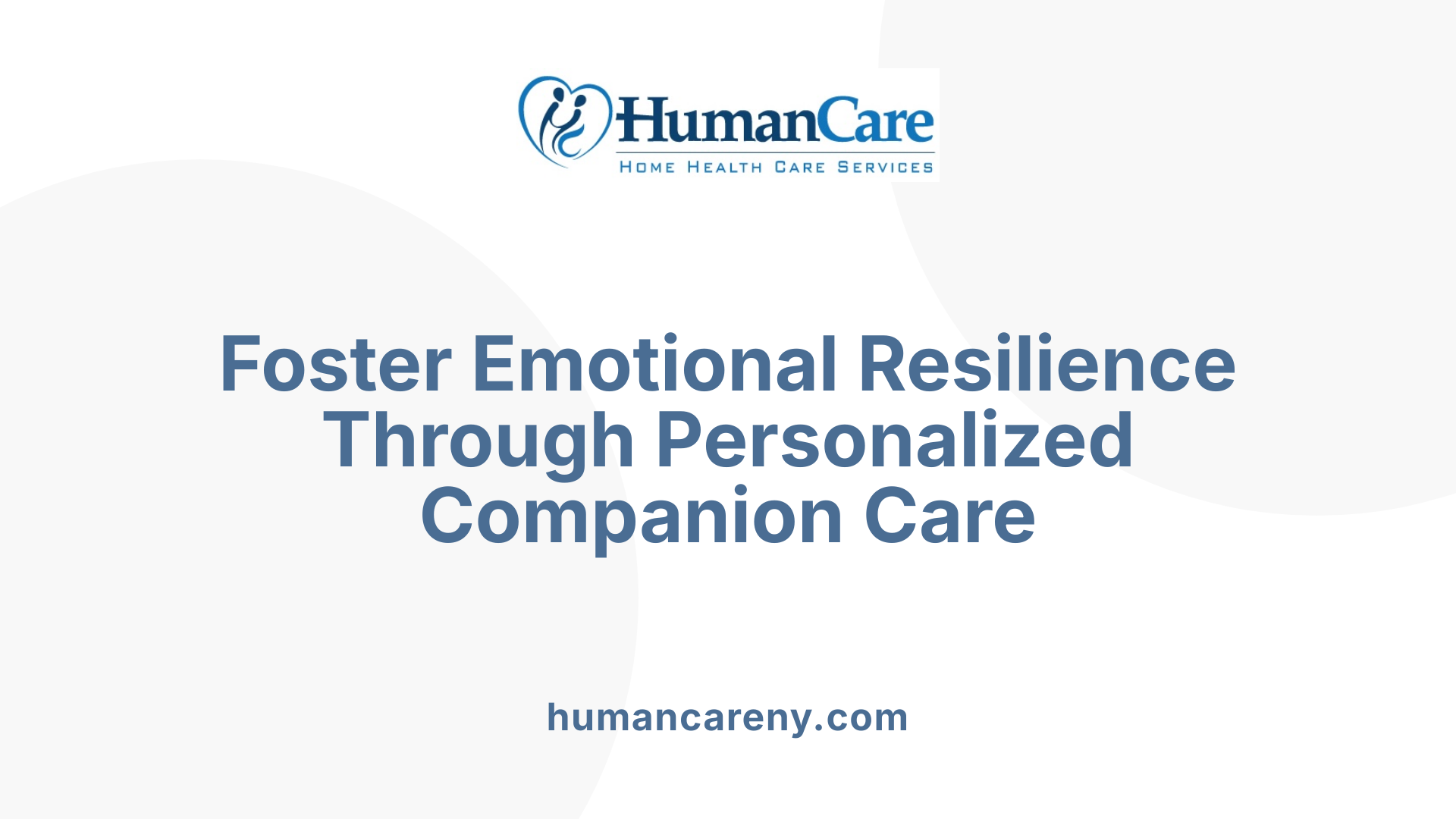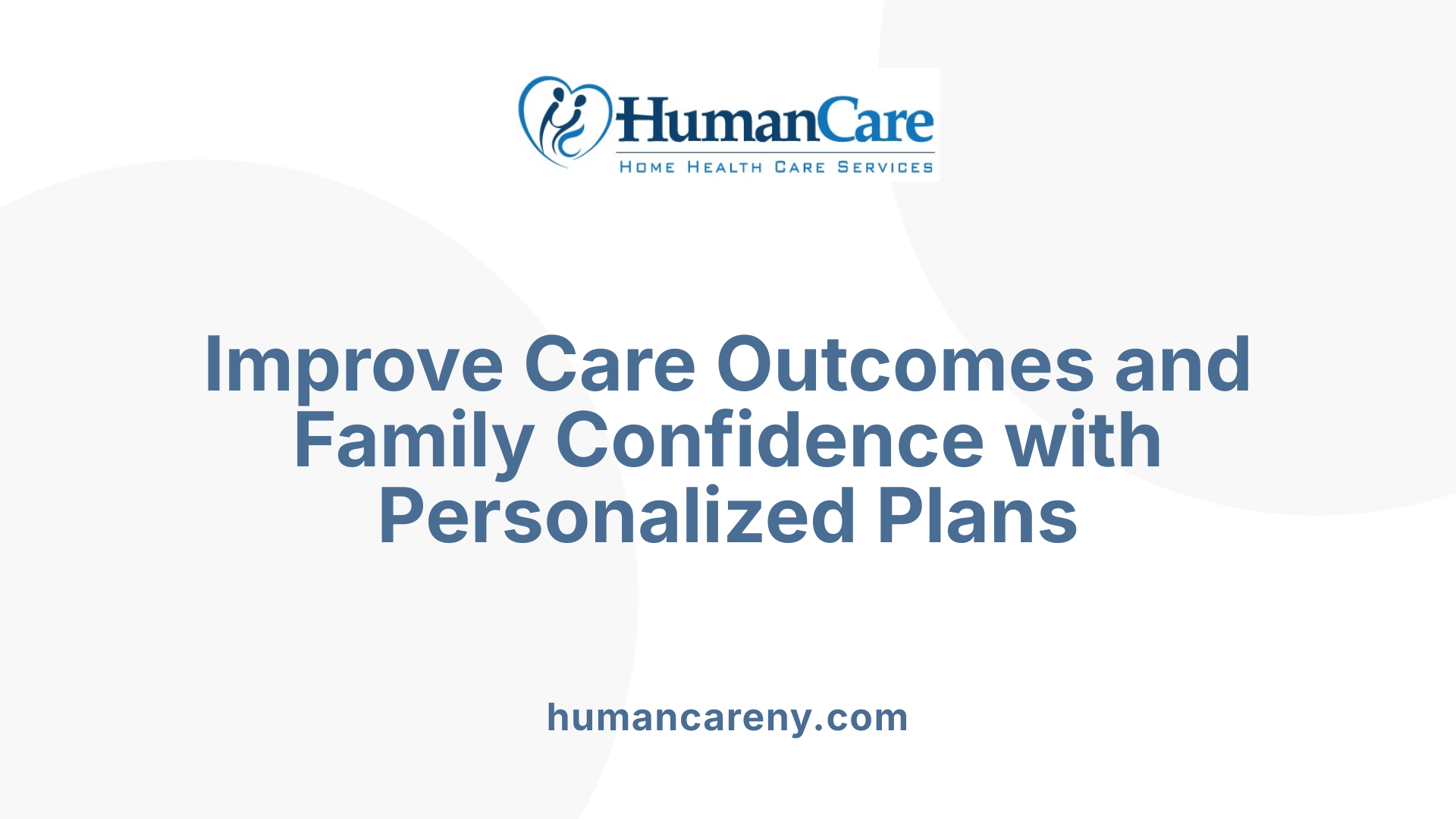Understanding the Power of Personalized Care Plans
Personalized companion care plans are transforming elderly support by offering tailored, holistic services that respect each individual’s unique needs, preferences, and circumstances. These plans serve as comprehensive roadmaps that facilitate aging in place, improve quality of life, and foster stronger relationships between seniors, caregivers, and families.
The Essential Components of Effective Personalized Care Plans

What are the key components of effective personalized care plans?
Effective personalized care plans are carefully designed to address the unique needs and preferences of each individual, ensuring that care is both relevant and effective. The foundation of such plans begins with a comprehensive health assessment. This assessment gathers vital information about the person’s medical history, current health conditions, emotional well-being, social circumstances, and lifestyle choices.
Involving the individual in goal-setting is crucial. This collaborative process ensures that care objectives reflect personal priorities, whether managing a chronic illness, improving mobility, or enhancing emotional health. Once goals are established, targeted interventions are developed. These are specific actions, therapies, or lifestyle adjustments tailored to meet the individual’s unique needs.
Care coordination among healthcare providers is another vital element. It facilitates seamless communication and collaboration across physicians, nurses, therapists, and social workers, leading to cohesive and consistent care delivery. Regular reviews and updates of the care plan help adapt to evolving health conditions and changing personal goals.
The use of technology enhances plan management significantly. Electronic health records and remote monitoring devices allow for real-time data sharing and quick adjustments. Digital tools also foster better communication, making it easier for individuals and caregivers to stay informed and involved.
Measuring the success of care plans through performance indicators and gathering feedback from patients and families are essential to ensure continuous improvement. These measures help identify areas for reinforcement or modification, maintaining the plan’s relevance.
In summary, effective personalized care plans integrate thorough assessments, active patient involvement, tailored interventions, interdisciplinary collaboration, technological support, and ongoing evaluations. This comprehensive approach helps promote holistic well-being, improve health outcomes, and ensure that care respects individual values and preferences.
Supporting Aging in Place and Promoting Independence
How do personalized care plans support aging in place and independent living?
Personalized care plans are essential tools that enable seniors to age comfortably and maintain independence within their own homes. These plans are carefully crafted based on thorough assessments by healthcare professionals, which include understanding the individual’s health conditions, routines, preferences, and social needs.
A primary focus of these plans is to address each person's unique health requirements through targeted interventions such as medication management, which ensures correct dosage times and reduces risks of complications. Additionally, they incorporate home safety modifications—like installing grab bars or removing tripping hazards—to reduce the likelihood of falls and injuries.
These plans also facilitate assistance with daily activities, including bathing, dressing, and meal preparation, tailored to the person’s level of mobility and strength. Such focused support helps prevent unnecessary hospitalizations and supports the management of chronic illnesses.
Emotional and social engagement is another vital component. Care plans often incorporate companionship, mental stimulation activities, and opportunities for social interaction, which combat loneliness and promote mental health.
Families, caregivers, and multidisciplinary teams—including social workers, therapists, and medical providers—collaborate to review and update these plans regularly. This ongoing process ensures support remains aligned with changing needs and circumstances.
Furthermore, technological solutions like telehealth, remote monitoring devices, and home automation are seamlessly integrated into personalized plans. These tools provide real-time health tracking and instant access to care, reinforcing seniors’ sense of security and ability to respond to emerging issues.
Ultimately, personalized care plans create a safe, supportive environment where seniors are empowered to live independently, uphold their dignity, and enjoy a high quality of life within the familiarity of their own homes.
The Role of Companion Care in Emotional and Mental Well-Being

How do personalized companion care plans support emotional well-being?
Personalized companion care plans are designed to provide social interaction and mental stimulation tailored to each individual's preferences and needs. By engaging residents in meaningful conversations, hobbies, and activities that resonate with their interests, these plans help combat loneliness and social isolation, which are common causes of depression and anxiety among seniors and those with disabilities.
How do they address loneliness and social isolation?
Loneliness can severely impact mental health, leading to feelings of neglect and emotional distress. Companion care addresses this by ensuring regular, person-centered interactions that foster a sense of connection and belonging. This social engagement supports emotional resilience, helping individuals feel valued, understood, and less isolated.
How can personalized engagement build emotional resilience?
Engaging residents through activities aligned with their personal history and preferences encourages active participation, boosting confidence and independence. This involvement enhances their emotional resilience, as they develop a stronger sense of control and self-esteem. Such tailored engagement helps manage emotional challenges and promotes mental stability.
How does caregiver-resident relationship strengthening benefit mental health?
Trusting relationships between caregivers and residents are foundational for emotional support. When care plans incorporate understanding of personal stories and preferences, they foster warmth and rapport. This depth of relationship leads to better communication, more effective support, and a feeling of being genuinely cared for, all of which contribute to improved mental health.
What are the overall benefits of personalized companion care?
Overall, personalized companion care creates an environment of safety, respect, and social connectivity that supports emotional stability. By addressing individual psychological needs through tailored social interactions and activities, it enhances mental well-being, reduces stress, and promotes a higher quality of life for those receiving care.
Benefits of Personalization in Social and Physical Support

What are the benefits of personalized care planning?
Personalized care planning plays a vital role in enhancing the overall well-being of individuals by customizing support according to their unique needs and preferences. It helps in reducing loneliness and depression by facilitating social engagement, social activities, and hobbies that match the individual's interests.
Through tailored activities and social opportunities, personalized plans encourage seniors and residents to participate actively in their community and daily routines. This participation not only enriches their lives but also fosters a sense of belonging and purpose.
Supporting physical health is another key benefit. Customized activities can include specific exercise routines, dietary plans, or health management strategies designed to address individual health conditions. This targeted approach leads to better health outcomes and helps prevent complications or hospital readmissions.
Dignity, independence, and self-esteem are strengthened when support services respect personal choices and promote autonomy. Personalized plans empower individuals to make decisions about their daily routines, health interventions, and social interactions, enhancing their confidence and satisfaction.
Family involvement is encouraged through collaborative planning, ensuring that loved ones can contribute to the care process. This participation helps in aligning support strategies with personal and cultural values, creating a cohesive and supportive environment.
Overall, these tailored approaches foster trust and engagement, contributing to improvements in quality of life, emotional resilience, and physical health. Regular reviews of care plans ensure they remain relevant and adaptive as needs evolve, maintaining a person-centered focus throughout care delivery.
Impact of Customized Support on Care Quality and Family Satisfaction

How do personalized care plans impact care quality and satisfaction for seniors and their families?
Personalized care plans play a crucial role in elevating the overall quality of care delivered to seniors. These plans are carefully tailored to address each individual’s unique medical conditions, emotional needs, social preferences, and cultural backgrounds. As a result, seniors experience more relevant, compassionate, and effective support, which enhances their health outcomes.
When care is aligned with personal preferences and lifestyles, residents often show better adherence to treatments and participate more actively in their care routines. Early detection of health changes becomes easier when plans include ongoing assessments and regular reviews, preventing complications and hospital readmissions.
Family members feel more confident and at ease knowing their loved ones are receiving care that respects their history and wishes. This transparency fosters trust, strengthens communication, and promotes shared decision-making—where families are involved in setting goals and updating care strategies.
Moreover, personalized plans empower seniors by supporting their independence and dignity. They help maintain routines and social connections, which contribute to emotional well-being and overall satisfaction.
The integration of advanced technologies, such as telehealth and remote monitoring, further enhances these benefits by enabling continuous, responsive support. These sophisticated tools make care plans more adaptable, scalable, and effective.
In summary, detailed, flexible, and person-centered care plans significantly improve life quality for seniors and bring peace of mind to families. They cultivate trust, promote active participation, and yield better health outcomes, ultimately creating a more satisfying and effective caregiving experience.
Embracing Personalization for Better Senior Care
Personalized companion care plans stand at the forefront of modern elder support, offering tailored, holistic, and dynamic services that nurture independence, emotional well-being, and overall quality of life. Their collaborative and adaptable nature ensures that seniors receive ongoing, relevant support aligned with their evolving needs and goals. By integrating compassionate caregiving with innovative technology and family involvement, personalized plans transform senior care from a one-size-fits-all approach to one that truly respects and responds to individual dignity and preferences. Embracing personalization in care plans not only enhances health outcomes but also strengthens caregiver relationships and elevates the overall standard of elder support, ensuring that every senior can enjoy a fulfilling, secure, and autonomous life in their preferred environment.
References
- The Benefits of a Personalized Care Plan in a Nursing Home
- How Personalized Care Plans Improve the Resident Experience
- The Importance of Personalized Care Plans when Aging in Place
- Importance of Personalized Care Plans in Home Nursing
- 10 Reasons Personalized Care Plans Matter - Salus Homecare San ...
- Why Personalized Home Healthcare is Essential for Elderly Care
- 8 Benefits of Personalized Care Plans for In-Home Care - Medflyt
- The Benefits of Personalized Care Plans - Community Homecare
- 10 Benefits of Private Pay Home Care: Enhancing Lives with ...



